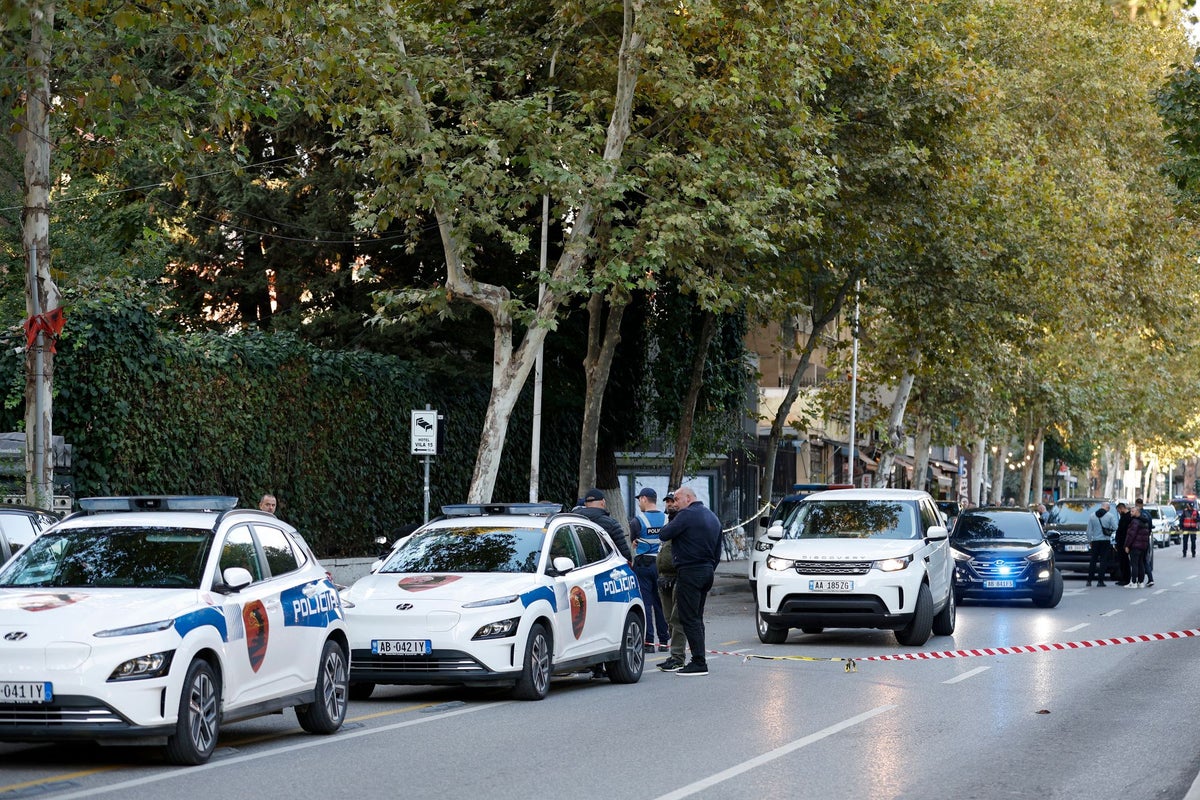
A judge in Albania was shot dead after a man on trial opened fire during a hearing over a property dispute, according to local police.
Judge Astrit Kalaja was presiding over a hearing at the Court of Appeal in Tirana on Monday afternoon when the defendant shot him with a pistol, authorities said.
The veteran judge later died on the way to hospital, local officials said.
A father and son involved in the hearing were also reportedly shot, sustaining non-life-threatening injuries.
Police arrested a 30-year-old man identified by the initials “E Sh” who was later named in Albanian media as Elvis Shkëmbi. The suspect is said to have opened fire because he expected to lose the case, according to local media.
The suspect’s uncle and a security guard at the court were also arrested, police said.
Shkodra police said that arrest was made as the uncle had made comments to Albanian media threatening other judges.
Brunilda Lika, a lawyer at the courthouse on Monday, told reporters during a vigil on Tuesday: “For a judge to lose his life while giving a decision for the Republic of Albania is an unprecedented act. I saw the panic that occurred in the courtroom.”
She said she was not present in the courtroom at the time of the shooting.
Judge Kalaja had been a lawyer for more than 30 years. Sali Berisha, leader of the opposition Democratic Party in Albania, said it was the first time in 35 years a sitting judge had been killed “while doing his duty”.
Prime minister Edi Rama said on Monday it was a “tragic event” and called for tougher sentencing on gun crimes.
“The criminal aggression against the judge undoubtedly demands the most extreme legal response against the aggressor,” he wrote on X.
President Bajram Begaj said the attack was a “terrible attack against the entire justice system”.
The British embassy in Tirana said: “We are deeply saddened by the tragic death of Judge Astrit Kalaja.
“Our condolences go to his family, friends and colleagues.
“We strongly condemn the violence and call for urgent measures to ensure the safety and security of judicial officers and the integrity of courts.”
